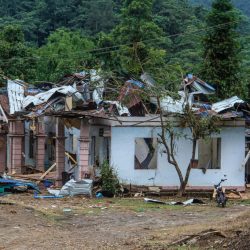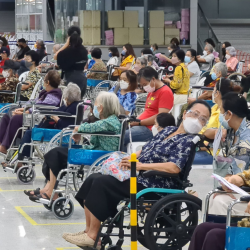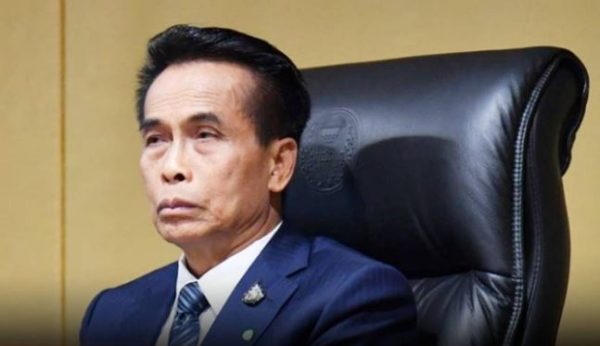Pita urges pragmatic cooperation with other nations
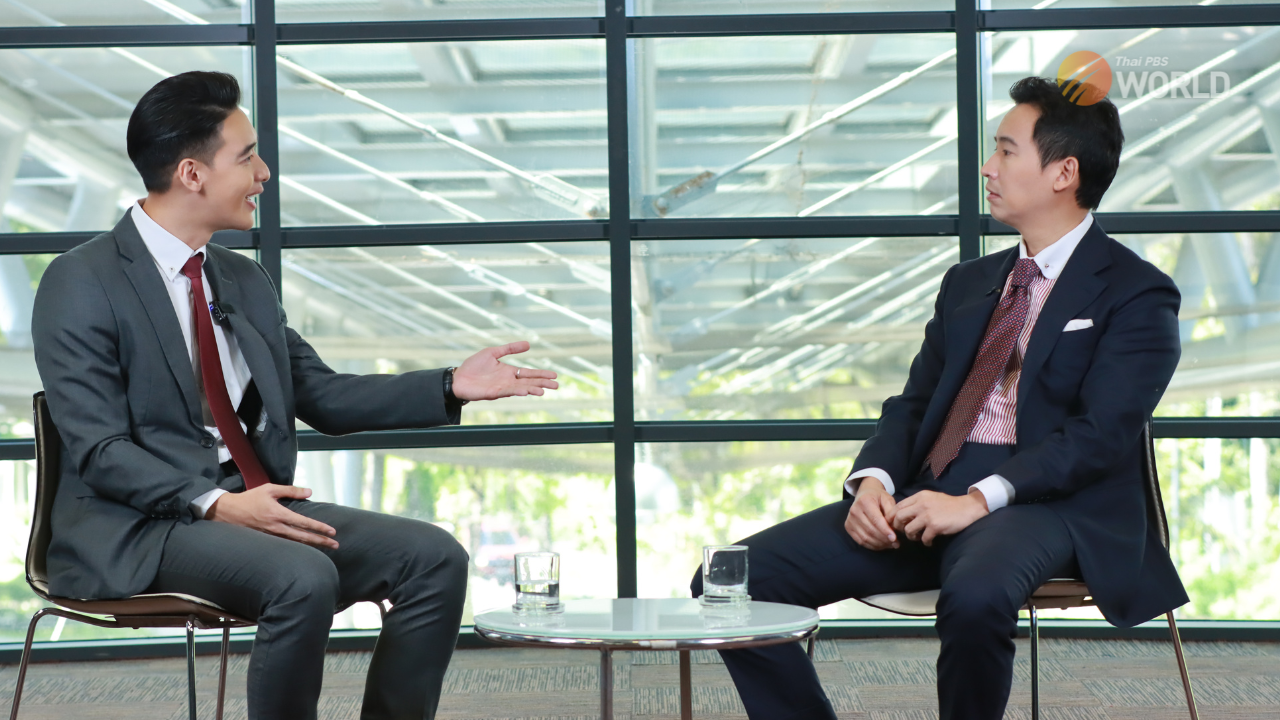
While Prime Minister Srettha Thavisin spends time overseas, to develop relationships with other countries, Pita Limjaroenrat, a key figure in and former leader of the Move Forward party, emphasises that regaining Thailand’s influence on the regional and international stages requires more than just attending summits, pointing out the need for genuine and meaningful mutual benefits.
In an exclusive interview with Thai PBS World, Pita said that international travel and meetings are advantageous, but they must be backed by strategic action and a pragmatic approach to seeking cooperation with other nations.
“International trips are good, but the ability to follow up and develop mutual benefits of significance are important. The key word in your question is influence. Influence is the ability to get someone to do what you want, whether through cooperation or coercion. In order to cooperate with some countries in foreign policy, you must have legitimacy. Foreign policy is a reflection of domestic policy. If you want to be part of an international rights community, you have to clean your own house before you join,” Pita said.
Turning to domestic policy, Pita argued that Prime Minister Srettha’s policies to drive the economy, particularly the digital wallet scheme, distributing ten thousand baht to fifty million Thai citizens and funded by a five hundred billion baht loan, is an old fashioned approach. The chief advisor advocated that the money be used for investments in education and public health, to address fundamental societal needs.
“If we talk about economic stimulation through “helicopter” money, a term first used in 1969 by economist Milton Friedman, it is a very old concept, to borrow future money and helicopter drop money to the people. This amount of money, where does it come from? That same amount of money could alternatively help children who are out of educational system. It could be used to reduce the inequality in public health or could it be used to help the elderly?” Pita said.
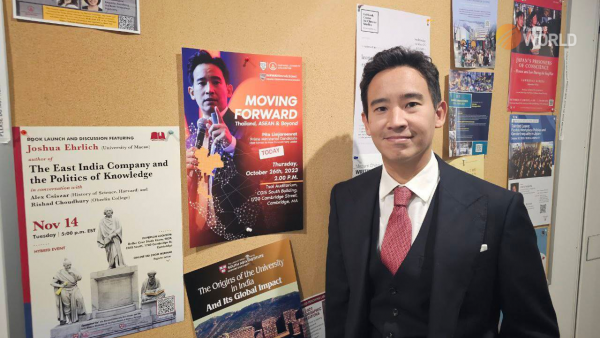
While Srettha’s administration vowed to implement stimulus plans, such as the increase in the minimum daily wage, Pita proposed a shift towards economic reconstruction, rather than short-term stimulation.
On foreign direct investment and its challenges, Pita cited issues like water shortages, the need for a skilled labour force and green supply chains should be addressed nationwide, not just in special economic zones. He called for comprehensive solutions to these problems across the country.
“The solution for these issues should not be area based, like in the Eastern Economic Corridor. While there is the expression “special zone”, on the reflection, it means that it’s bad in a normal area. In the normal area, land rights, water shortages and waste management are pretty bad, so that’s why you need to have a special zone, which allows 99 year land leases and where those issues are taken care of,” Pita said.
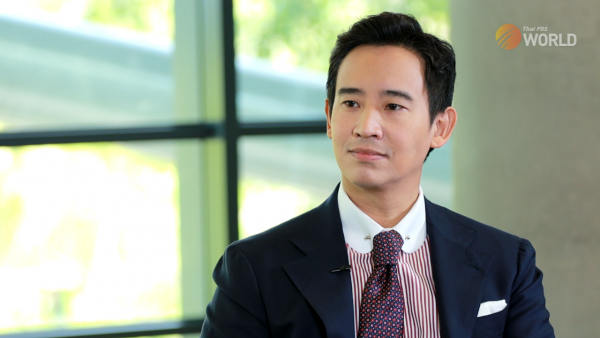
In light of the recent sexual harassment controversy, Pita expressed his disappointment and emphasised the need for stricter codes of conduct within the party, adding that the revision of these codes, prevention and education about such acts are paramount for Move Forward’s MPs and staff.
“I have compiled a code of conduct for institutions and political parties. We have to be able to look into a code of conduct that we give to our staff and MPs. The ratification part is also crucial. I have to speak on behalf of those people who were behind the investigation. The investigation required details and scheduling. We have to give full respect and care to the victims, as to when they want to speak and when they don’t,” Pita said.
Another burden that Pita has carried is the legal case concerning ownership of iTV shares, which has resulted in him being suspended as an MP and could lead to imprisonment and a political ban. The chief advisor is under investigation over the 42,000 shares he held in iTV, inherited from his late father over 17 years ago. The shares were transferred to his relatives in June this year.

Under the current Constitution, a candidate standing for election to parliament is prohibited from owning shares in a media company. Pita, however, is not fazed by the legal challenge, insisting that he will continue in his duty to represent the people and speak out on societal issues, bolstered by the support of his voters.
“What I will do from now on, at a very fundamental level, is to make sure that the trust and the love seen at the previous election and the validity of the election allow me to continue with my duties. It includes speaking on behalf of the people, providing checks and balances and passing progressive laws. I cannot get into parliament, I cannot sign and I cannot vote, but wherever I go and I see that something is wrong or something has potential, I will speak out and people will listen, comment, criticise and make it better,” Pita said.
By Franc Han Shih, Thai PBS World
Full interview with Pita Limjaroenrat, Chief Advisor to Move Forward Party Leader

